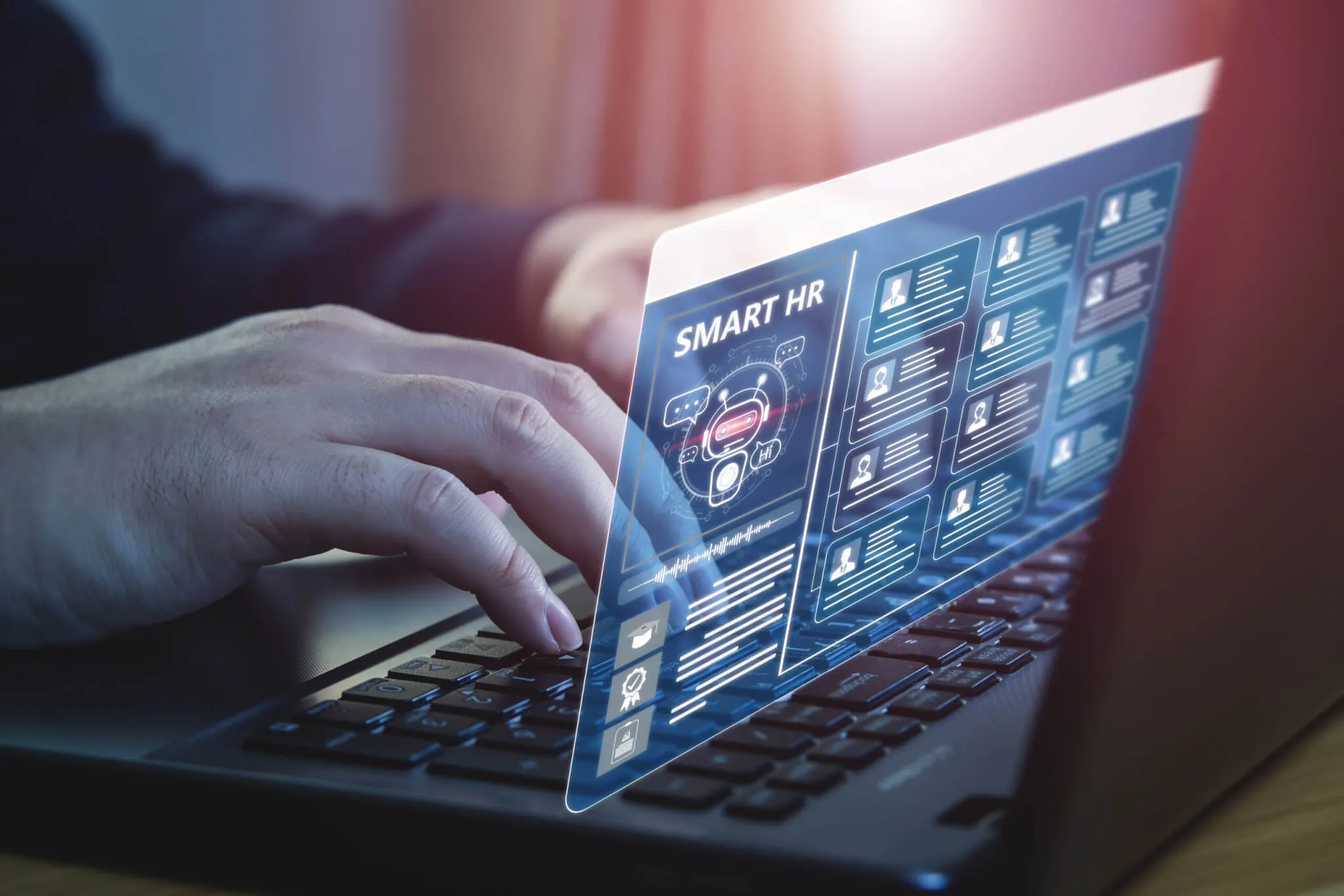December 4, 2023
AI Is Changing The Role Of HR

AI and automation are revolutionizing various aspects of HR, from recruitment and onboarding to performance management and employee engagement. In 2024, HR departments will increasingly adopt AI-powered tools and chatbots to streamline administrative tasks, enhance data analytics capabilities, and provide personalized employee experiences. By automating repetitive tasks, HR professionals will have more time to focus on strategic initiatives and employee development.
HR departments have traditionally faced an ever-present challenge of balancing the organization’s wants and needs with the HR department personnel’s bandwidth. Leaders in HR have had to focus on the highest priority items while moving other “nice-to-have” items to the wish list for next year. HR teams have rotated their attention to solve different problems at different times.
The rise of AI in the workforce is helping HR to become effectively present in virtually every area of the department simultaneously. An engaged study found that 65% of respondents reported AI improved productivity and efficiency in their HR departments. The top five functions that AI has significantly impacted were
- Performance management
- Employee engagement and satisfaction
- Training and development
- Recruitment and talent acquisition
- Employee inquiries
AI has equipped HR teams to serve leaders and employees in the way they used to imagine. We’re here to shatter the mystery of AI and bring a real picture of what companies can do when they embrace AI’s capabilities.
AI-Powered Tools In HR
AI can have a transformative effect on HR processes and streamline HR operations. It shifts HR away from paper-pushing toward the more strategic function of building and growing productive teams. Using AI-powered tools, HR teams can intricately reach and support the workforce while minimizing waste.
AI-driven resume screening and candidate matching – AI helps produce more accurate and specific job descriptions that can match with submitted resumes and resumes the AI tools find online. AI can use questionnaires and assessment data, including behavior and personality traits, to pull the best matches to the top.
Virtual onboarding assistants – AI-powered onboarding platforms can walk new hires through forms and contracts with the capability to explain questions and encourage their completion.
Chatbots – Employees can consult everpresent chatbots to find accurate and timely answers to HR questions and concerns.
Real-time performance feedback – Through AI analytics, HR can house important performance data that can be manipulated to address specific and pressing concerns. Real-time data gives leaders a realistic view of individual output and uncovers insights that help to guide the support plan to strengthen teams.
The Benefits Of Adopting Artificial Intelligence In HR
Streamlining administrative tasks – HR teams can operate administrative processes systematically so that hiring, onboarding, exit interviews, and benefits enrollment happen seamlessly with a consistent format.
Time and cost savings through automation – HR spends less time sifting through resumes, answering common employee questions, locating documents and resources, and pulling out employee feedback.
Reduced manual errors – Candidate resumes don’t fall through the cracks or suffer unconscious bias. Onboarding and policy updates happen thoroughly, even when HR staff may be tired or distracted.
More people using HR services – HR information is easier to access and more confidential. Employees don’t have to worry that their frequent questions and special concerns label them “high maintenance” or “slow”. Problems get brought to light more readily and more people get the information they need to move forward.
Sharpened HR responsibilities – HR professionals have an increased capacity for strategic planning. This will help them align HR goals with organizational objectives. HR professionals can focus exclusively on strengthening teams through talent development, culture, and DEI initiatives. HR teams make better decisions with data-driven insights. Data helps them identify trends and patterns in employee behavior to guide their support plan.
Related Reading: HR Leaders Build Connection In The Workplace
In conclusion, as AI becomes integral to HR, enhancing efficiency and productivity. It is vital to recognize that it serves to augment, not replace, the human element in the workplace. While AI can optimize various HR functions, it cannot replicate the essential human connections at the heart of HR’s mission.
The true strength of AI in HR is its role as a complement to human skills. AI will allow HR professionals to focus on their key strengths – empathy, motivation, and talent development. This synergy of AI and human insight is what will shape the future of HR. AI offers data-driven support; humans bring understanding and empathy to the table.
Let’s embrace AI’s capabilities while keeping the human touch central to HR’s role. This will ensure a workforce that is not just efficient but also connected, satisfied, and engaged.
More to come. Join our Monthly Digest!
Newsletter Signup
Stay on top of the latest HR resources, news, and events. It’s a community where like-minded HR leaders looking to transform their company’s overall well-being.
